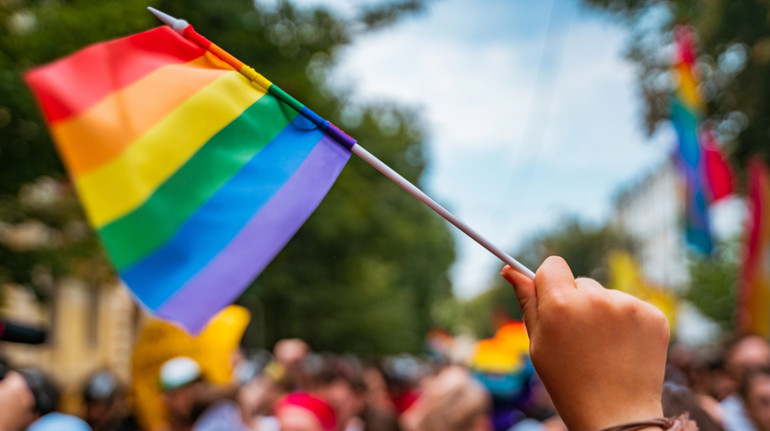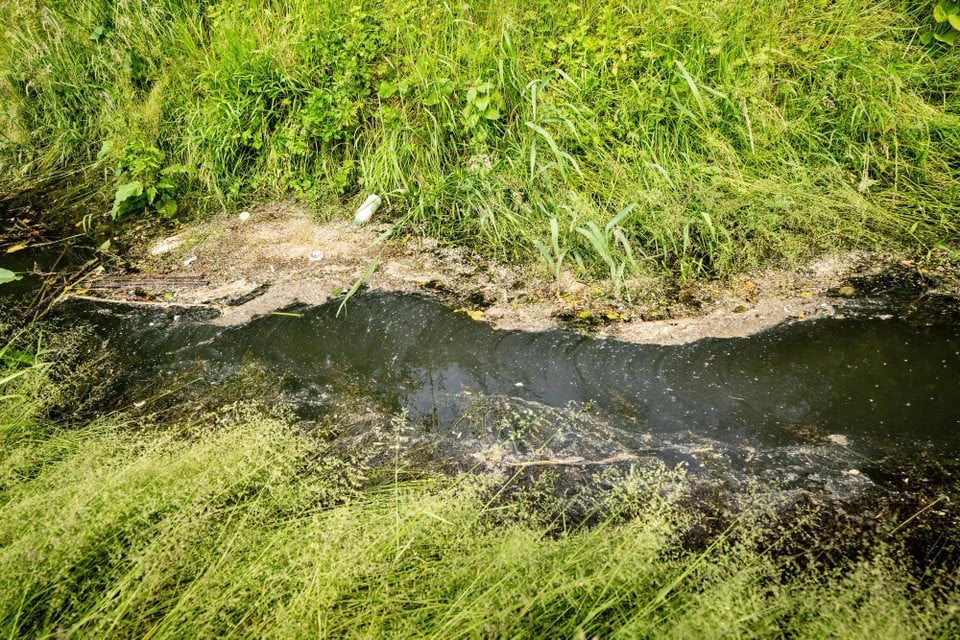ETH no longer wants to comment on world politics

ETH no longer wants to comment on geopolitical conflicts in the future – the time is explosive
The Russian invasion of Ukraine condemned the ETH Zurich sharply. But now President Joël Mesot fears that ETH could be drawn into world politics with such statements. At the same time, science under Donald Trump becomes politics.
The ETH Zurich received post from the Trump administration. Subject: a potentially unpleasant research project.
The administration of US President Donald Trump puts pressure on science: research money is frozen, scientific institutions are weakened and entire departments- from climate to gender research- censored and hollowed out. The survey and the international exchange of data, including health data to the currently circulating and highly pathogenic bird flu virus, were banned.
According to a report of the « NZZ on Sunday » The Trump administration has also sent questionnaires worldwide to universities to check whether the USA is in line with the government's political line. A questionnaire landed in the ETH mailbox because of a certain project. The content of the project is unknown, but the questions deal with diversity, equality, inclusion, climate and environment – topics that are undesirable under Trump.
This one questionnaire could only be the beginning. According to the “NZZ am Sonntag”, 14 projects with American funds are currently underway at ETH, and the institution receives CHF 2.5 million US funding per year. The ETH in Lausanne, the EPFL, also received almost 1.2 million francs last year. « We are aware that the political situation could affect this source of financing, » says the EPFL media office on request.
Other Swiss universities also benefit from US funds: Five projects are currently underway in Basel, Nine in Geneva and 15 in Bern. The University of Zurich receives one million dollars annually from the US National Institutes of Health. So far, however, only the ETH Zurich has been confronted with a questionnaire.
The universities must find a common answer
One thing is clear: the universities have to deal with this intervention from the USA. An internal clarification is already underway at SwissUniversities, the conference of university rectors. However, this is complex and time -consuming, it says on request. The publication of a corresponding statement is expected at the earliest next week.
The ETH area will also discuss the handling of the US questionnaires. First of all, an analysis on the legal foundations must be made, after which the institutions could act accordingly, says Gian-Andri Casutt, head of communication of the ETH area, which, in addition to the ETHS Zurich and Lausanne, also includes the Paul Scherrer Institute, Eawag, Empa and the WSL.
FDP national councilor Simone de Montmollin, President of the Parliamentary Commission for Science, Education and Culture, WBK, warns of overhanged reactions on the US questionnaire: « Before we don't know who is affected, we should not overreact. » However, your attitude is clear: «Politics cannot make science regulations. We shouldn't sacrifice this principle, it would be dangerous. » The Swiss universities should rather look for funds elsewhere.
But there are also Swiss politicians who would greet fewer gender studies or publications about the risk of global warming. Is Switzerland immune from the influence of parliament? Montmollin replies: «It is society that raised these questions – and the universities answered research. If the expectations of society change, the universities have to change their research program. » She trusts the self -regulation of expectations and research. « You don't have to dictate that brutally. » And sometimes there is also an order of the people who justify studies on a certain topic – as after the vote on the Klimgersetz.
The State Secretariat for Education, Research and Innovation (SBFI) points out on request that the constitution guarantee the freedom of scientific teaching and research. It is also the universities themselves, which would decide on which international research cooperations they take part. « This also applies to projects for which you receive foreign funds. »
ETH does not want to be drawn into geopolitics
Almost at the same time as the public's public from the USA, ETH Zurich has passed a new position paper. Accordingly, the university does not want to take an official position on geopolitical conflicts in the future. The document has developed a specially formed ad hoc commission under the direction of bioethics professor Effy Vayena since July 2024. This says on the ETH website: « The waiver of official positioning does not mean that our institution is indifferent to the global challenges. » But the best contribution that ETH can make for the world is the fulfillment of its order in research, teaching and knowledge transfer. The positioning for complex geopolitical crises is not part of this core order.
The quote from ETH President Joël Mesot: While ETH members are free to form and express their own political opinions, the university as an institution has a clear responsibility to fulfill its core tasks « without being drawn into geopolitical debates ».
With its statement, ETH is not alone – it sounds similar from Lausanne: The EPFL writes « that it is not our job to react to political decisions in the USA or somewhere in the world ».
In the past, ETH Zurich has expressed geopolitical conflicts. Recently around March 2022, a few days after Russia marched to Ukraine. At that time the ETH published a message that it « Solidarity with Ukraine » overtit. « The ETH is condemned by the military invasion of Russia to Ukraine and the associated massive violation of international law, » said President Mesot in it.
In fact, practically all research institutions reacted to Russia's attack in violation of international law. The nuclear research center in Geneva, CERN, founded as a peace project, also hired his cooperation with the aggressor.
So does ETH want to do without a positioning in the future in such clear cases? Yes, one would no longer give a statement in this form: « It would be limited to concrete offers of help for people from the crisis region and for ETH members who are personally affected by the geopolitical crisis, » says the media office.
Rosenwasser: « ETH eludes responsibility »
However, this neutrality line also comes across criticism, for example with the SP national councilor Anna Rosenwasser, who is committed to inclusion and is also a member of the WBK parliamentary Commission. She says: « Neutrality is an absurd claim when it comes to science. » Because science provides facts that served as the basis for analyzes, decision-making and opinion finding. Rosenwasser does not see that ETH no longer wants to position itself for geopolitical affairs as neutral, but: « This means that it is deliberately to take responsibility. » The ETH and other Swiss universities are highly regarded worldwide. « If you dig away from the influence of right -wing populist governments, you not only risk your credibility, but also your own independence. »
And Mathilde Crevoisier, President of the WBK Commission on the Council of States, says, of course, the universities are free to choose strict neutrality, but « the problem is whether they are doing this for fear of political reprisals. » Against the background of the decline in public funds for education, this danger is certainly given.
Antonio Loprieno, Professor of History of the Institutions and former principal of the University of Basel, sees it. He thinks it is right that ETH has convened a commission to clarify the question and says: «I understand that the universities prefer not to comment on geopolitics. The world has become too complex. » Too many interest groups are represented at a university, too many relationships would be risked.
However, if it is not about politics, but about academic freedom, the universities should stand there: « If you can afford it, you should not be intimidated, and I assume that Swiss universities can afford it, » says Loprieno. Because what is currently going from the Trump administration, he would never have thought possible: «This is intimidation of academic freedom that I associate with North Korea! Before the Second World War, scientists fled to the outside of America – now the opposite is happening. »
But the universities would not have to hang their steadfast attitude on the big bell, otherwise they would do politics. Loprieno thinks: «In its answer, ETH can clearly position itself and emphasize that this is a massive intervention that also affects future cooperation. My experience is that selective answers to pressure attempts are more effective than public statements. »
Get sign of a positioning
If public statements are no longer made, the public events remain at which one can read the attitude of the university. In 2023, ETH, for example, led a so-called evening talk at the Center for Security Studies with the title “Is Putin firmly sitting in the saddle? Domestic political dynamics in Russia ». Antonio Loprieno thinks such: «This is about education. This is even the case with political issues if you reflect the public interest and a basic social consensus like in the War of Russia. » (KUS)
First combative statements on academic freedom in Europe
On the other hand, the academies of Switzerland's sciences in February have signed a public statement: it is about a statement the All European Academies (Allea), an association of academies of science and similar institutions in Europe. They call on governments and institutions to « reinforce ongoing efforts to protect academic freedom and autonomy of scientific institutions ».
Yves Flückiger, President of Switzerland Academies, to this was in a post on LinkedIn in detail. Accordingly, it is also time for Swiss research institutions to demonstrate “their unshakable support for academic freedom as a guarantee of scientific progress, as the basis for future innovations and as an indispensable prerequisite for the fight against fake news”.








